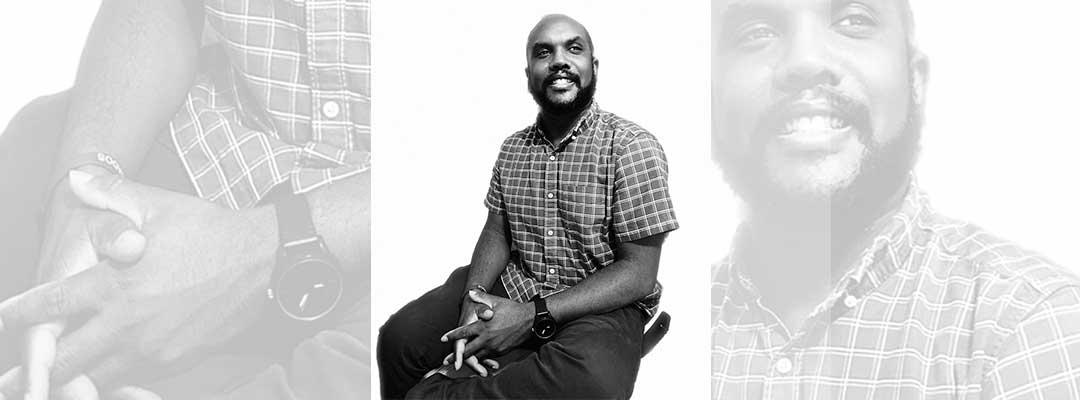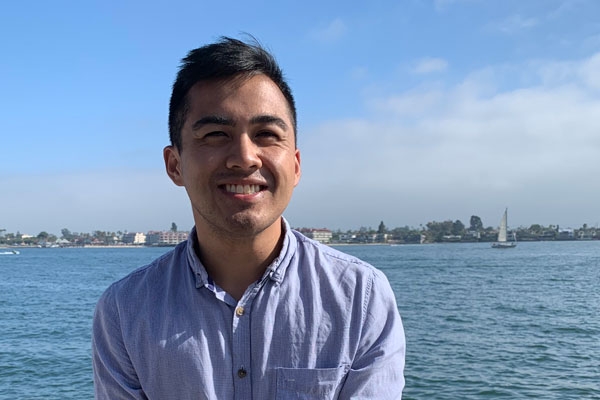Our field is ever-changing. As we gain new insights, the study and practice of abnormal psychology remains mysterious, dynamic and complex, reluctantly disclosing its secrets.
The field of clinical psychology affords many opportunities to work in different clinical settings and subspecialties. You can see this in my education and career path.
I first worked with persons with severe mental illness in upstate New York at Rescue Mission, a residential treatment program, in the early 2000s. Several years spent there getting to know my residents at a deeper level inspired me to become an advocate for the voiceless and the underserved. During my time at Rescue Mission, I earned my Bachelor of Arts, cum laude, in psychology at Utica College of Syracuse University in New York. I then went on to receive a Master of Science in cognitive neuroscience from the University of York in England before completing my doctorate degree in clinical psychology at John F. Kennedy University in the San Francisco Bay Area in 2012.
My training includes completing a pre-doctoral internship in addiction medicine at UCSF/San Francisco General Hospital, also in 2012. There, I treated dual-diagnosis patients and patients on methadone maintenance.
Afterward, I completed a post-doctoral fellowship with Contra Costa County Forensic Services and the Consultation and Assessment Team in Concord, Calif. There I conducted psychiatric evaluations for individuals who were incarcerated in Martinez Detention (Martinez, Calif.) and West County Detention facilities in Richmond. With the Consultation and Assessment Team, I worked with adolescents who experienced physical and sexual abuse. I conducted psychological assessments utilizing cognitive, objective and projective tests. My reports were submitted to the court with my clinical recommendations regarding treatment and parent reunification.
Since 2015, I have worked as a licensed clinical psychologist and clinical supervisor in Kaiser Permanente’s psychiatry department. I provide individual and group psychotherapy to adults who are suffering from a range of psychological disorders. I have facilitated various groups, including those for cognitive behavioral therapy (CBT) depression, trauma, dialectical behavioral therapy (DBT) and ADHD. Additionally, I supervise psychologists completing their post-doctoral psychology fellowship at Kaiser.
Currently, I’m also an ER psychologist at Sutter Health Alta Bates Summit Medical Center in Berkeley. I conduct psychiatric assessments to adults and minors in acute distress and determine whether patients need to be placed on an involuntary 5150 hold due to danger to self, others or grave disability. Conducting inpatient seclusion and restraint assessments is also a part of my responsibility to ensure the safety of the patient in distress and of other patients in the unit.
The field of clinical psychology affords many opportunities to work in different clinical settings and subspecialties.
How does this background and current work fit into the field at large?
In recent years, there is greater awareness and willingness to advocate for an individual’s mental health. This only bodes well for the field of psychology. There are continued advances in our knowledge and understanding of various mental illnesses, such as schizophrenia and autism spectrum disorder.
The field of psychology has advanced significantly in the past 40 years. Recent developments in brain imaging, which include functional magnetic resonance imaging (fMRI), have allowed us to slowly unlock the secrets of the brain. We can now more closely examine the underlying cortical networks that reflect particular changes in psychopathological conditions. This gives us a better understanding of the manner in which normal social, emotional and behavioral processes become dysfunctional.

Teaching Abnormal Psychology
I have been teaching at UC Berkeley Extension since 2014. I have also taught courses in psychopathology to graduate students at John F. Kennedy University.
Mental disorders are part of the human experience, and have been with us throughout human history. Abnormal Psychology explores what is considered “normal” versus “abnormal” behavior.
This course spends significant time examining, in depth, various mental illnesses that include but are not limited to:
- mood and psychotic disorders
- eating disorders
- disorders of childhood
- trauma- and stressor-related disorders
- substance use disorders
- neurocognitive disorders
- personality disorders
We also discuss various neuroscience approaches to understanding psychopathology, as well as the etiology and treatments for psychiatric disorders.
Abnormal Psychology is one of the few psychology classes that I have seen both personally and professionally inspire students to continue their education and pursue a career in psychology.
We cover a wide range of psychiatric disorders that at some level affects each student—whether personally experiencing a mental disorder, having a family member diagnosed with a mental disorder or, more broadly, friends and society at large grappling with understanding and prioritizing mental health.
Mental health is finally more at the forefront of people’s minds and many celebrities and sports figures are speaking out regarding the importance of mental health. This course not only provides a space to explore abstract psychological concepts, but also provides students with the opportunity to examine the practical implications of conducting psychiatric assessments, diagnosing individuals and providing treatment to various clinical populations.
Students are given an opportunity to examine mental disorders through the lens of the therapist, as well as through the lens of the client.
They will obtain a solid clinical and empathic understanding of psychopathology, a basic understanding of how to conceptualize cases and gain an understanding of the various evidence-based treatments available. This course provides a forum to explore the permeating relationship between stigma and mental illness, as stigma remains a central problem in the field of psychopathology. We discuss the role of culture impacting diagnosis, treatment and even access to treatment.
I’m excited to teach my students because they provide a level of maturity and focus that lends to active and insightful discussions. It is a joy to teach students who are curious and excited about the field of psychology and are looking to make a difference in their community. They bring fresh energy to the field, a unique perspective given their previous career and educational path, and I appreciate their level of engagement and insights.
Intrigued?
Enroll in Dr. Scantlebury’s Abnormal Psychology online Start Anytime class!



